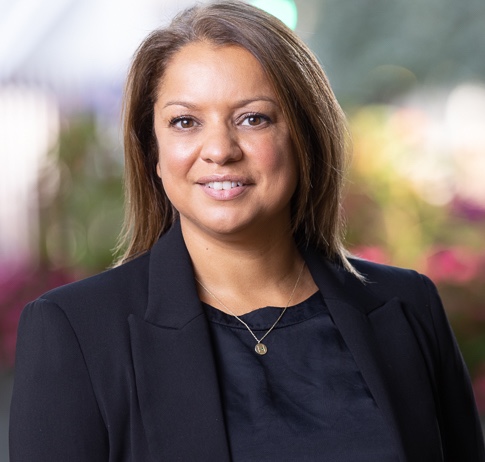Article
Estate Planning for non-Muslims and residents in the UAE
7 October 2024 | 4 minute read
With increasing opportunities and a diverse population, the UAE has become an attractive jurisdiction for foreign businesses and entrepreneurs. According to recent figures, immigrants make up about 88% of the total population. What's more, in 2023 only, around 160,000 'Golden visas' were issued by Dubai's General Directorate of Residency and Foreigners Affairs (GDRFA). However, this diversity of cultural and religious backgrounds, and potential conflicts with legal systems from a person's country of origin, often results in different expectations regarding estate planning.
Without a good understanding of the UAE's unique legal framework, UAE residents and in particular non-Muslims may face difficulties to safeguard their legacy – this may include unintended beneficiaries due to the application of Sharia principles which permeate the country's legal system. Over recent years, legislative updates have been introduced to give non-Muslims and UAE residents more flexibility to tailor their estate plans.
The UAE's legal framework
The UAE is mainly a civil law jurisdiction based on Sharia principles and a civil code (as opposed to the common law legal system found in, for example, England & Wales). The Civil Code 19851 and the Commercial Code 19932 are the two main laws governing business life. Inheritance law is based on Sharia law and codified in the Personal Affairs Law3 and the Civil Transactions Law4. Before the amendments to the Personal Affairs Law were introduced, in the absence of a will, the locally situated assets of non-Muslims would be distributed according to Sharia law.
New succession laws
Changes to inheritance rules for non-Muslims were introduced in 2023 by the Federal Decree-Law No. (41) of 2022 on Civil Personal Status (the Decree-Law). With the introduction of the new law, Sharia principles no longer apply by default for non-Muslims who die without a will. Article 1 provides that its provisions shall apply to non-Muslims who are UAE nationals and to non-Muslim foreigners residing in the UAE, unless they decide to follow the laws of their home country or select alternative personal status laws in effect in the UAE.
What's more, the law provides that, in the absence of a will, the deceased's estate will be distributed without a distinction between genders. The position is different under Sharia law5 where female beneficiaries would receive smaller shares than their male counterparts.
Abu Dhabi and Dubai
The emirate of Abu Dhabi also issued in 2021 a new personal status law[6] to regulate personal status matters for non-Muslims in the emirate. The provisions of this new legislation are similar to the Decree-Law, for instance non-Muslim spouses in Abu Dhabi may inherit half of their spouse's assets in the absence of a will. The Abu Dhabi Global Market (ADGM) courts also now offer services including the registration of non-Muslim wills.
In addition, the Dubai courts have announced the establishment of a division for the inheritance of non-Muslims and the execution of their wills. The Dubai International Financial Centre (DIFC) also has its own Wills Service Centre which facilitates the registration of English language wills by non-Muslims. The wills can cover testators' worldwide assets and they are prepared and registered in accordance with DIFC Wills and Probate Registry Rules which are based on common law principles. The execution and registration of DIFC wills is completed online and a testator does not need to be a UAE resident to register a DIFC will.
In 2005 and 2018, the DIFC also introduced new legislation establishing a legal framework with regard to trusts introducing greater flexibility for the settlor, trustees, and beneficiaries. Corporate trustees established in the DIFC are now able to own assets in other free trade zones and in the UAE mainland subject to certain restrictions (including approval for trust structures holding land). The new rules introduced in 2018 also address conflicts with foreign law. A similar system was introduced in the ADGM with the enactment of the Trusts (Special Provisions) Regulations 2016.
Takeaways
Thanks to recent changes in the UAE's regulatory landscape, non-Muslims and residents in the UAE have more flexibility to tailor their estate plans according to their wishes. Despite the changes, it is essential to consult with legal professionals experienced in the UAE's estate planning laws to ensure a will is valid and achieves the testator's objectives, especially where the objectives are to ensure a division of an estate outside of local law. It will also be essential to ensure that the will complements any estate planning and wills outside of the region and to take into account applicable conflict of law points or where foreign estate taxes might apply to the assets.
UAE investors and residents should also be aware that in the UAE there are restrictions in respect of trust structures holding land and the disposal of land through a will (local laws have to be considered). Non-Muslim business owners should also be aware that any assets owned jointly with a Muslim individual will be subject to Sharia law.
It is also important to keep in mind that, as the legislatives changes are still relatively new, they are yet to be tested and particular care should be taken where there are Sharia principles or public policy considerations (which are influenced by Sharia law) associated with any planning.
Withers are specialist global estate planning experts and can assist with international estate planning, including implementing Wills under the DIFC Will regime.
1 - UAE Federal Law No. 5 of 1985
2 - UAE Federal Law No. 18 of 1993 (amended by Federal Decree Law No. 50 of 2022)
3 - UAE Federal Law No. 28 of 2005 (amended by Federal Law No. 8 of 2019, Federal Decree Law No. 29 of 2020 and Federal Decree Law No. 5 of 2020)
4 - UAE Federal Law No. 5 of 1985
5 - Personal Affairs Law, arts. 313-361
6 - Abu Dhabi Law No. 14/2021

